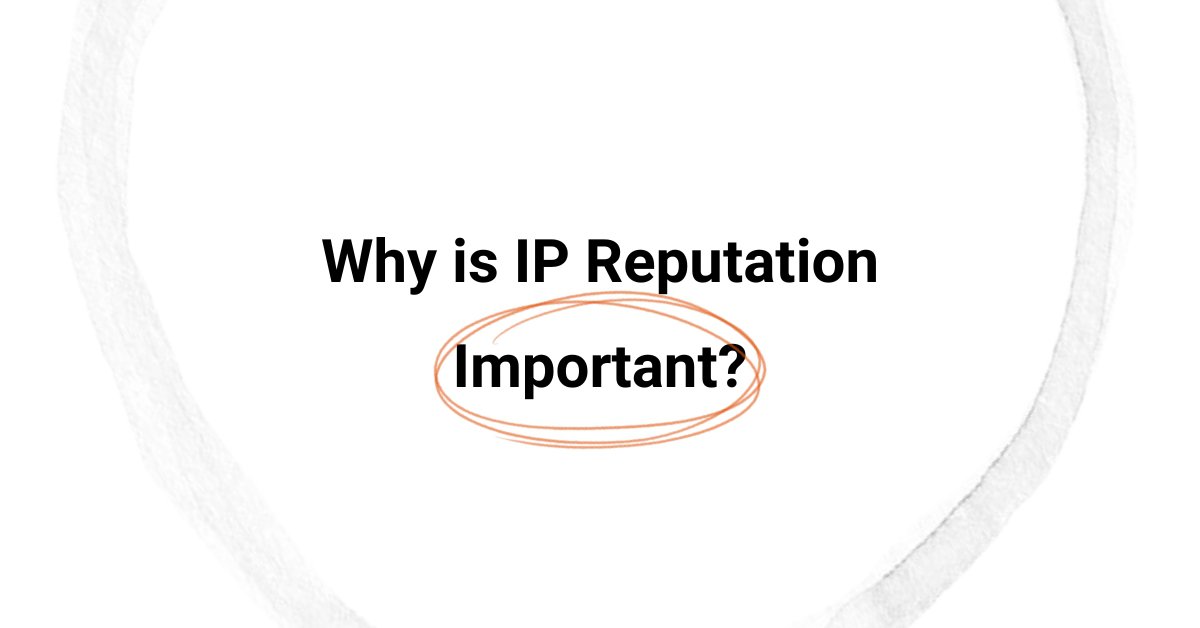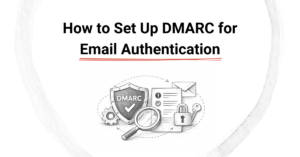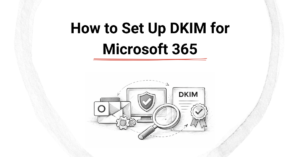Email marketing remains the most effective and accessible communication channel for modern businesses. But to capitalize on this marketing tool, you must first reach recipients' inboxes. IP reputation score is one of the primary email marketing metrics that determine the effectiveness of your email campaigns.
It determines whether your carefully crafted emails reach the recipient’s inbox or get lost in the spam folder. Without a solid IP reputation, even the most creative and well-targeted emails can fail to make an impact, leading to lost opportunities and wasted resources.
IP reputation measures the trustworthiness of the email senders' IP address. This directly impacts email deliverability as internet service providers (ISPs) flag email messages sent from unscrupulous sources and block the senders. Therefore, it is paramount for businesses to maintain a stellar IP reputation.
If you want to check your IP reputation, Email Industries' comprehensive deliverability solutions offer proactive measures to prevent IP blacklisting. Get in touch with our deliverability experts today to supercharge your next email marketing campaign.
Summarizing the key points:
- IP reputation measures the trustworthiness of your IP address based on your email-sending behavior.
- A high IP reputation improves inbox placement, leading to better engagement metrics like open rates, conversion rates, and click-through rates.
- A low IP reputation increases the risk of being blacklisted and reduces email deliverability.
- IP reputation management helps ensure campaign success, protect sender trust, and maintain brand credibility.

What is IP Reputation?
IP (Internet Protocol) reputation is a score assigned to every IP address to measure trustworthiness. This score is calculated using several factors, including bounce rates, spam complaints, and various engagement metrics. Essentially, it shows how well an IP address complies with email-sending best practices. ISPs use this specific IP address data to decide if an email message is from a genuine sender or a spammer.
For example, an IP address with a high score is more likely to deliver emails to recipients' inboxes rather than the spam folder. Think of IP reputation as the credit score for your IP address. Just as a high credit score increases trust with lenders, a high IP score builds trust with ISPs. Lack of trust can result in legitimate emails being filtered out, making it harder to engage with your audience.
Why Does IP Reputation Matter to Email Deliverability?
A strong IP reputation score is the cornerstone of email deliverability. It ensures that your emails not only reach your audience but also have the best chance of being opened and engaged with. Here are three reasons why this is important for email marketing.
Improved Inbox Placement
IP reputation score determines where your email lands. For example, consider an email marketing campaign with an excellent subject line and engaging content. If the sender's IP reputation score is poor, that email will likely fail to reach recipients inboxes and instead land in the spam folder, rendering all the effort behind the campaign useless. Therefore, you must maintain a high IP reputation to meet customers in their inboxes.
Avoid Blacklisting
Blacklisting is one of the most severe consequences of a poor IP reputation. Organizations like Spamhaus monitor IPs and maintain blacklists of addresses known for sending spam or violating email-sending best practices. If your IP is blacklisted, your emails will be blocked by most ISPs, effectively cutting you off from your audience. Hence, you must follow all email marketing best practices to avoid blacklisting.
Higher Sender Reputation
Sender reputation is the perception ISPs and recipients have of your email-sending practices. A high IP reputation helps build and maintain this trust. ISPs are more likely to recognize you as a legitimate sender, ensuring your emails are delivered to the inbox. This trust also extends to your audience, who are more likely to engage with emails from a recognized and reliable sender.
Key Factors Impacting IP Reputation
Several factors influence your IP reputation. Understanding these elements can help you take steps to protect and improve your reputation. Let's walk you through the primary factors impacting IP reputation.
Bounce Rates
Bounce rates are a measure of the percentage of emails that generate delivery errors due to several reasons such as invalid email addresses, overflowing mailboxes, and other issues. High bounce rates signal ISPs that you may be sending emails to outdated or inactive email lists, which negatively impacts your IP reputation.
Spam Complaints
Spam complaints occur when recipients report your emails as spam. A high rate of complaints can quickly harm your reputation and trigger ISP scrutiny. You must regularly clean your email lists to remove inactive addresses and use double opt-in methods to ensure recipients have explicitly agreed to receive your emails. This not only reduces the number of spam reports but also helps you avoid spam filters.
Email Engagement Metrics
ISPs track email engagement metrics like click-through rates, open rates, and conversion rates to determine how recipients interact with your marketing emails. High engagement and positive user behavior indicate that your content is relevant and welcomed, while low engagement rates can harm your IP reputation. You must focus on creating personalized and engaging email content and segmenting your audience based on preferences and past behavior to increase relevance.
Sending Volume and Frequency
A sudden increase in email traffic or irregular sending habits can alert ISPs to potential issues. For example, sending 50,000 emails from a new IP in one day can lead to scrutiny and potentially damage your reputation. Therefore, you must maintain a consistent sending schedule and gradually increase your volume to avoid triggering ISP alarms. This practice is known as email warming.
Consequences of Poor IP Reputation
Ignoring the IP reputation score can have serious repercussions on your email marketing campaigns and brand image. Let's walk you through the primary consequences of a poor IP reputation.
Reduced Email Deliverability
Email deliverability is the measure of the total emails delivered from your IP. Emails sent from an IP with a poor reputation are more likely to encounter spam issues or get blocked entirely. This reduces your open and click-through rates, ultimately lowering your email deliverability rates. For example, when running a promotional campaign with time-sensitive offers, poor deliverability means fewer recipients will see your marketing emails, resulting in missed sales opportunities.
Negative Brand Impact
When your emails land in recipients' spam folders, it not only hampers your IP reputation but also your brand's image. Your target audience may view your brand as unreliable, and repeated issues can erode customer trust. You should protect your brand’s reputation by proactively monitoring your IP reputation score and strictly following all email marketing best practices.
Financial Implications
Reduced email deliverability can directly impact your campaign's ROI. If fewer emails are delivered, fewer customers will convert, leading to lower revenue. Poor IP reputation can also lead to additional costs, such as hiring specialists to repair a damaged IP reputation. To prevent these financial implications, you need to monitor your IP health regularly. Consider investing in reputation management tools to avoid unnecessary financial losses.
How to Monitor and Improve IP Reputation
Now that you are familiar with the fundamentals of IP reputation, let's walk you through the process of monitoring and improving the IP reputation score.
Use Reputation Monitoring Tools
Tools like Sender Score, Talos Intelligence, and Google Postmaster Tools offer detailed insights into your IP reputation. They can help you track critical metrics, identify issues, and take corrective action before your reputation suffers. You should regularly check and address flagged issues promptly to maintain a high reputation score.
Implement Authentication Protocols
Authentication protocols such as Sender Policy Framework (SPF), DomainKeys Identified Mail (DKIM), and Domain-based Message Authentication, Reporting, and Conformance (DMARC) help verify that your emails are sent from a legitimate source.
This builds trust with ISPs and reduces the likelihood of your emails being flagged as spam. You should work with an IT team to ensure all authentication records are correctly configured.
Follow Email Marketing Best Practices
Complying with international and local laws and following email-sending best practices can significantly improve your IP reputation. For example, using opt-in lists and avoiding spammy language in subject lines can drastically reduce the chances of recipients marking your emails as spam or your messages triggering spam filters. For best results, segment your audience, send relevant content, and follow a consistent sending frequency.
Best Practices for Improving IP Reputation
Here are three proven email marketing best practices to improve and maintain your IP reputation score and boost email deliverability.
Maintain List Hygiene
Practicing good email hygiene by regularly removing inactive subscribers and invalid email addresses reduces bounce rates and improves email marketing metrics, both of which positively impact your IP reputation. Consider using email validation tools like Alfred by Email Industries and implement double opt-in methods to ensure you’re reaching engaged recipients.
Practice IP Warming
When using a new IP address, it’s essential to build its reputation gradually. Sending high volumes immediately can harm your reputation and make it harder to reach inboxes. Start with small, highly engaged lists and slowly increase your sending volume over time.
Monitor Feedback Loops
Feedback loops allow you to track spam complaints and adjust your email marketing strategies accordingly. For example, if a recipient marks your email as spam, you can remove them from your list to prevent further complaints. Partner with email service providers to access feedback loops and take action on complaints immediately.
Improve Your IP Reputation with Expert Guidance
IP reputation is the backbone of email deliverability and campaign success. A strong IP reputation ensures your emails reach the inbox, avoids blacklisting, and builds sender trust. By monitoring your reputation, implementing authentication protocols, and following best practices, you can protect and enhance your IP health.
Ready to improve your IP reputation score? Book a discovery call today to learn how you can boost deliverability with expert guidance and professional assistance.








